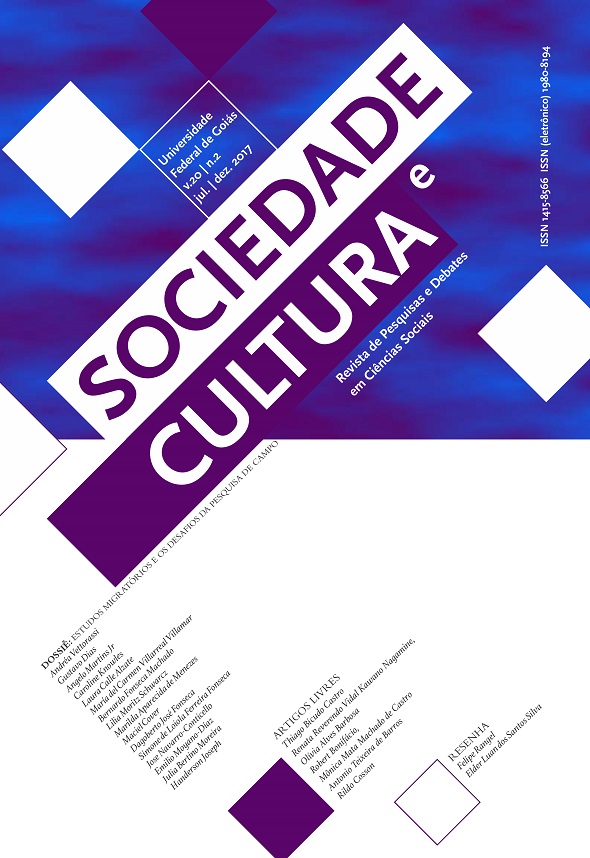Repressão aos intelectuais e estudantes: aproximações entre Ato Institucional nº 2 e Lei Suplicy de Lacerda (1965-1968)
DOI:
https://doi.org/10.5216/sec.v20i2.53072Abstract
A sociologia da cultura e a sociologia histórica têm
encontrado, no Brasil, nos últimos anos amplas possibilidades
de retomarem seus debates e visibilidade, por meio de novas
fontes, que até então receberam pouca atenção das Ciências
Sociais. Entretanto, muitas dúvidas ainda pairam sobre diversas temáticas e objetos de estudos, a exemplo das implicações do Ato Institucional nº 2 sobre os intelectuais brasileiros no período da ditadura civil-militar (1964-1985); e da Lei Suplicy de Lacerda sobre o movimento estudantil do mesmo período. Dessa forma, este artigo recupera o debate que envolve os intelectuais, estudantes, e a resistência cultural e política exercida por eles num momento de recrudescimento da repressão militar na década de 1960. Para tal objetivo, foi utilizado o periódico semanal Folha da Semana (1965- 1966), dirigido por Arthur Poerner, como principal fonte de pesquisa. Assim, identificamos as representações intelectuais provenientes de um jornal que reuniu liberais e comunistas na resistência cultural.
Downloads
Downloads
Published
How to Cite
Issue
Section
License
Authors who publish in this journal agree to the following terms:
- Authors retain the copyright and grant the journal the right of first publication, the work being simultaneously licensed under the Creative Commons Attribution License, which allows the sharing of the work with acknowledgment of authorship and of the initial publication in this journal;
- Authors are authorized to enter into additional contracts separately, for non-exclusive distribution of the version of the work published in this journal (eg, publishing in an institutional repository or as a book chapter), with acknowledgment of authorship and of the initial publication in this journal;
- Authors are allowed and encouraged to post and distribute their work online (eg, in institutional repositories or on their personal page) at any point before or during the editorial process, as this can bring productive change as well as increases the impact and the citation of the published work (see O Efeito do Acesso Livre).



